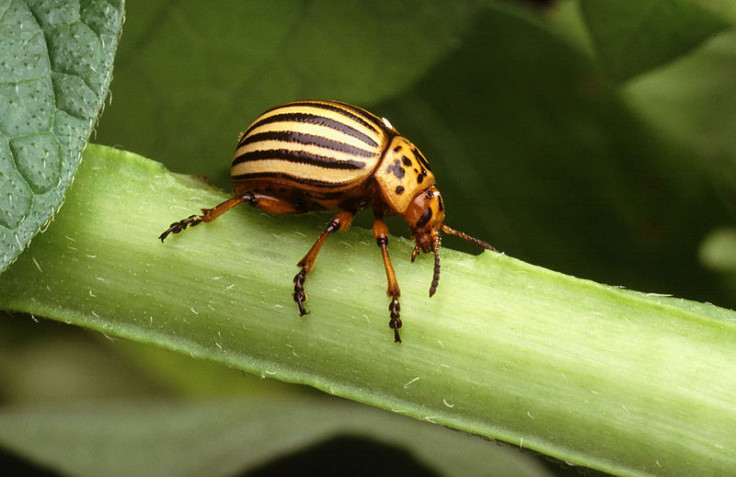Crop Pests ‘March Polewards’ Thanks To Climate Change

Climate change may be having a drastic effect on crop pests, new research indicates.
According to a study carried out by researchers at the University of Exeter and the University of Oxford in England and published in the journal Nature Climate Change, rising temperatures around the world are pushing crop pests out from the tropics and towards the North and South Poles at a rate of two miles a year.
“If crop pests continue to march polewards as the Earth warms, the combined effects of a growing world population and the increased loss of crops to pests will pose a serious threat to global food security,” study author Dr. Dan Bebber from the University of Exeter said in a statement.
Crop pests, which include fungi, bacteria, viruses and insects, destroy farmland and threaten the world’s food resources. Currently, 10 to 16 percent of the world’s crops are lost to disease outbreaks – enough food to feed hundreds of millions of people, Time magazine reports.
Researchers studied 612 crop pests and pathogens collected over the past 50 years that have devastated harvests in Africa, the Middle East and Asia. The study found that each species was shifting -- spreading about two miles each year since 1960.
"We detect a shift in their distribution away from the Equator and towards the poles," Bebber told the BBC.
The mountain pine beetle, Denroctonus ponderosae, is one species highly affected by warming temperatures. Over the past 10 years, the insects, which usually are unable to survive harsh winters at high altitudes, have thrived under the warming weather causing severe outbreaks that threaten forest life.
Scientists also point to rice blast fungus, a devastating pest in more than 80 countries that destroys rice crops; it has now moved to attacking wheat. Named wheat blast, the new disease has destroyed crops in Brazil.
To curb the crop pest spread, “renewed efforts” are needed to control their movements from region to region, Sarah Gurr from the University of Exeter said.
"We also need to protect our borders, we have to quarantine plants to reduce the chances that pests and pathogens are able to get into our agricultural systems," Bebber added.
© Copyright IBTimes 2024. All rights reserved.












